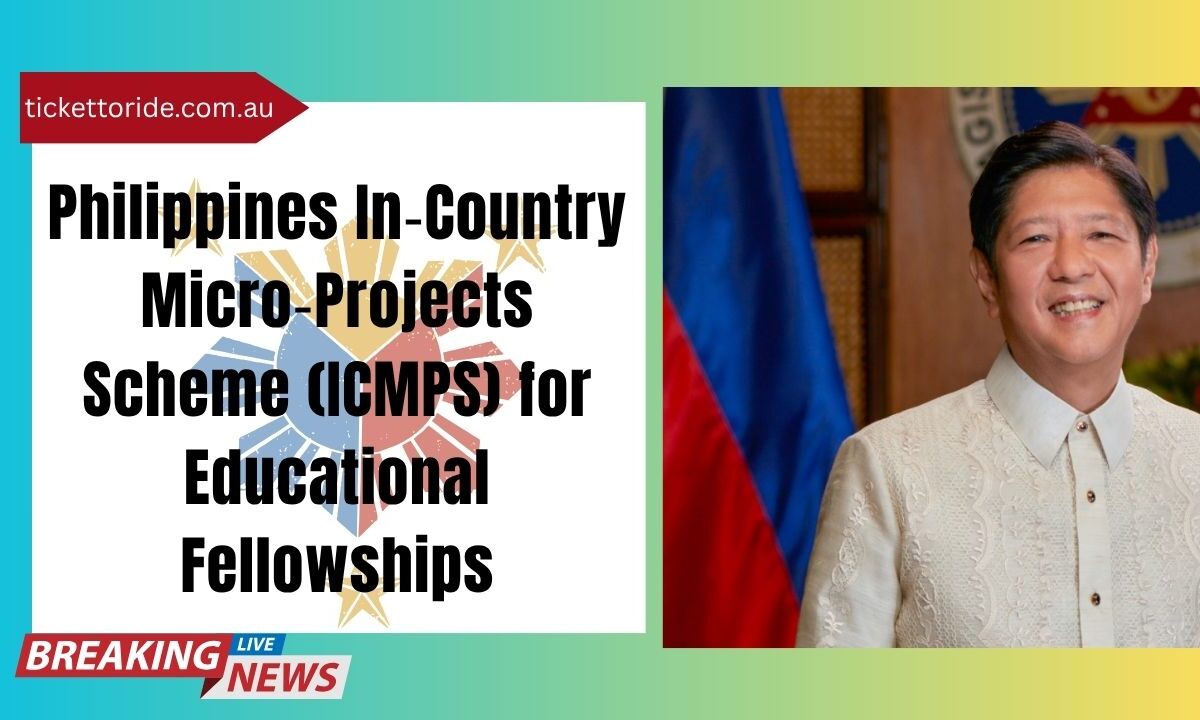The In‑Country Micro Projects Scheme (ICMPS), administered by Irish Aid and other diplomatic missions, offers vital educational scholarships, study grants, and research fellowships to local NGOs, academic institutions, and community-based organizations in countries like the Philippines.
In 2025, this scheme is prioritizing human rights, education, disability inclusion, and community development with grants up to €10,000.
This article explores the scheme’s purpose, eligibility, application timeline, and how to maximize your organization’s chances of securing support.
What Is the ICMPS?
The In‑Country Micro Projects Scheme is a small‑grants program that enables local partners to implement targeted initiatives aligned with Ireland’s international development priorities. These include:
- Access to education and skills training
- Disability inclusion in schools and research
- Food security and anti‑hunger projects
- Strengthening community voices on education policy
With grants covering up to 70% of project costs (max €10,000), local contributions (min 30%) encourage community ownership and sustainability .
Who Can Apply?
ICMPS applications are accepted from
- Registered NGOs and cooperatives
- Community‑based organizations with legal status
- Academic/research institutions partnering with local NGOs
Projects must be based within the country, with preference for initiatives empowering disadvantaged communities and inclusive educational models.
2025 Application Timeline & Award Process
| Milestone | Date |
|---|---|
| Call for Proposals Announced | June 9, 2025 |
| Application Deadline | July 4, 2025 |
| Awards Notified | Late August 2025 |
| Projects Commence | 1st Quarter 2026 |
Proposals must be submitted via the Irish Embassy or mission portal (e.g., Ireland.ie) by the mid‑year deadline.
Eligible Project Types
Examples of grant‑eligible educational projects include
- Scholarships or fellowships for teachers and researchers
- Curriculum development for inclusive education
- Training programs for learners with disabilities
- Community workshops on education policy advocacy
- Baseline research and action studies in education and social inclusion
Projects should demonstrate local impact, scalability, and policy relevance.
Funding and Co‑Financing
- Grant cap: €10,000 per project (max 70% of total costs)
- Minimum local contribution: 30% cash or in‑kind
- Eligible expenses include: stipends, materials, training, monitoring, evaluation
Funds are disbursed in phases, typically with an initial disbursement at project start and a final payment upon completion and reporting.
Application Tips
To improve your chances of success
- Align proposals with Ireland’s development priorities (education, disability, gender)
- Show strong local participation and sustainability
- Make your project measurable with clear outcomes
- Include a monitoring and evaluation section
- Ensure budgets are detailed and realistic (with minimum 30% local input)
Real‑World Impact
Past ICMPS grants have
- Provided school scholarships to underprivileged children
- Funded teacher training for inclusive classroom practices
- Supported community‑led research that influenced educational policy
These small grants often seed larger, long-term programs with proven community benefits.
Post‑Award Requirements
After being selected
- Sign a grant agreement with delivering mission
- Submit progress reports mid‑project
- Provide a final report, financial statement, and impact evaluation
- Participate in learning events and share best practices
The ICMPS 2025 offers an excellent opportunity for local organizations to initiate or strengthen educational and research-based interventions.
With funding up to €10,000 and community-driven focus, this scheme empowers groups to deliver lasting impact.
Prepare your proposal, secure local buy-in, and apply before July 4, 2025 to take advantage of this valuable resource.
FAQs
Q1: Can individuals apply or only organizations?
Only registered organizations (NGOs, academic institutions, cooperatives) can apply; not individuals.
Q2: Is local funding contribution mandatory?
Yes—projects must demonstrate at least 30% local contribution (cash or in-kind).
Q3: What type of reporting is required?
Grantees must submit a progress report mid-term and a final report including financial details, outcomes, and lessons learned.

